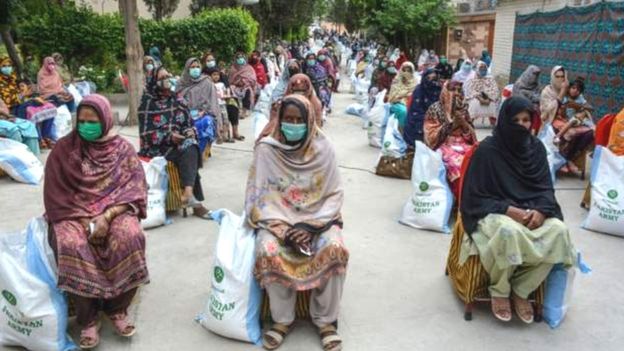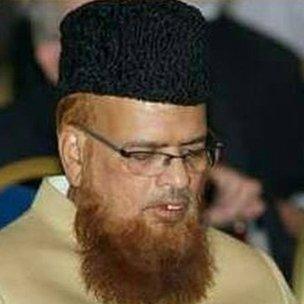 |
What are the concerns about the Zakat system in Pakistan? |
Among the departments assigned to the provinces from the federation after the 18th amendment in Pakistan is the Zakat department, about which the Auditor General of Pakistan has allegedly revealed irregularities worth billions of rupees. Pakistan's Supreme Court has also expressed concern about these irregularities.
Billions of rupees are taken in Zakat every year in Pakistan and after this amendment the only way to collect Zakat now is to calculate two and a half percent of the amount deposited in the savings accounts in banks after the announcement of Zakat syllabus by the government. The amount of Zakat is deducted from
First we need to look at the issue of when this system was introduced in Pakistan.
When did the law of Zakat come into force in Pakistan?
The law on Zakat and Ushr in Pakistan was enacted in 1980 under former military president General Zia-ul-Haq in the light of the recommendations of the Islamic Ideological Council.
When the law was enacted, there were already fears that the Pakistani system would face difficulties in enforcing the law, as well as irregularities.
Under this system, efforts were made to ensure that the Federal Zakat Council oversees the implementation of the law, which is headed by a Supreme Court judge, while other members of the council have a good reputation.
Similarly, at the provincial level, a High Court judge should oversee the council, while at the grassroots level, adult Muslims, teachers and clerics should sit in a mosque and elect the chairman and other members of the zakat council.
According to a gazette published in 1983, 32,000 Zakat Committees were set up across the country. The expenses of the council formed at the central level were borne by the federal government while the expenses of the zakat council formed at the provincial level were borne by the provincial governments.
The list of names of persons entitled to Zakat was prepared by the Client Council, while the members of the Zakat Council spent two to 10 per cent of the total Zakat on expenses.
 JTN IMAGES
JTN IMAGES
If the money was deducted from the banks in the form of Zakat and distributed to the deserving people, no compensation would be paid to the banks for these services.
This system of Zakat remained in force in the country for almost 30 years and throughout the year after the 18th Amendment to the Constitution in 2010 the matter went to the provinces and the 1980 Zakat Act was repealed.
Although the amount of Zakat deducted from the banks goes to the account of the Federal Zakat Council, from there the amount is distributed among the provinces in proportion to the population.
Current law
After the 18th amendment, the Zakat department went to the provinces, according to which the chairman of the Zakat and Ushr Council in Punjab, the largest province in the country in terms of population, would be a government employee or a retired High Court judge. In the absence of a retired Supreme Court judge, any person over the age of 40 is eligible to become the chairman of the council.
The council will be headed by a retired High Court judge in Sindh province and will be appointed by the provincial government.
At the district level this council will be elected with the approval of the Provincial Zakat and Ushr Council and the chairman of this council will be from the private sector while at the local level the members of the council will be elected in the light of the recommendations of the district council.
Religious scholar Mufti Taqi Usmani has submitted a report to the Supreme Court based on his opinion on Zakat and Ushr during the hearing of a suo motu notice on the corona virus in the Supreme Court. The law of Zakat and Ushr, which has been in force in the country since 1980, has been practically abolished and the matter has been transferred from the federation to the provinces.
The Supreme Court had sought the opinion of the Islamic Ideological Council on the Corona virus and Mufti Taqi Usmani as to whether the money raised from Zakat could be used to pay salaries to the people as well as spend it on administrative matters.

Mufti Taqi Usmani, who is also a former judge of the Shariat Applet Court of the Supreme Court of Pakistan, has said in his opinion that the money received from Zakat can be used in 8 different ways.
Among them, the person who collects the amount of Zakat and then distributes it can be paid from the amount of Zakat.
Apart from this, money can also be spent for the maintenance of the place where Zakat is collected.
Referring to the times of the Prophet of Islam and the Rightly Guided Caliphs, Mufti Taqi Usmani said that those who were hired to collect ushr etc. during the harvest season were also paid in return.
He said that the main purpose of Zakat is to distribute money among the deserving people, therefore Muslim jurists agree that a limited amount of money should be spent on those who collect Zakat considering the circumstances.
Mufti Taqi Usmani in his opinion quoting Imam Shafi'i said that one eighth of the total amount should be spent on those who collect Zakat while according to Imam Abu Hanifa up to 50% of the total amount should be spent on such persons.
People's concerns over the current system
Many people in Pakistan do not have confidence in the current system of deducting Zakat and such people are of the opinion that the money deducted from their accounts for Zakat does not reach the deserving.
Shiites agree that zakat is only for those who pay with their own hands and the account holders are never told where the money from the bank accounts was spent.
Zulqarnain Haider, an accountant, says that it is the responsibility of the person on whom Zakat is obligatory to pay Zakat with his own hands after tracing the deserving ones. He said that if any of the close relatives is deserving, then paying Zakat to him is the greatest reward.

Sohail Latif, an officer working in a private bank, says that when a person belonging to Jaffaria jurisprudence has a savings account, he also submits an affidavit to the bank that the bank should not deduct his Zakat but he himself. We will pay Zakat. He said that after this affidavit, the amount of Zakat is not deducted from the account of such person.
He said that now people belonging to other sects also submit an affidavit in the banks that the amount of Zakat should not be deducted from their accounts.
Mufti Taqi Usmani, in his opinion filed in the Supreme Court, said that withdrawing money from banks before Ramadan was a reflection of distrust in the system.
Secretary General of the Federation of Madrassas Muhammad Hanif Jalandhari said that the government should reconsider the issue of Zakat deduction and consult the Ulema in this regard.
He said that if the Prime Minister was talking about the state of Madinah, then first of all the system of Zakat should be explained and it should also be ensured that the amount of Zakat should be distributed to the deserving people.



No comments:
Post a Comment